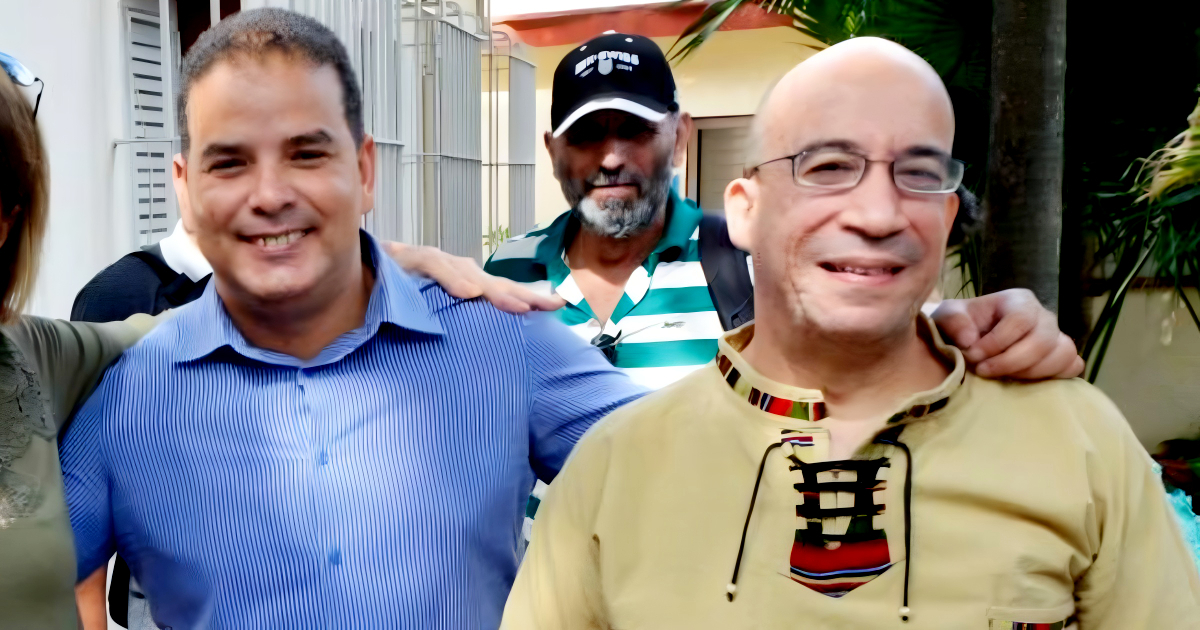While a significant protest unfolds among Cuban university students against ETECSA's steep price hikes, the country's official media chooses to avert its gaze. Instead of transparent reporting or reflecting the heated debates occurring in classrooms, Cubadebate opted to publish a doctrinaire poem on June 8 by Yoerky Sánchez Cuéllar. The piece, misleadingly titled “Respectful Dialogue,” attempts to downplay the students' widespread indignation.
Sánchez Cuéllar, who now leads Juventud Rebelde and previously directed the Federation of University Students' magazine Alma Mater, crafted three stanzas aimed at diluting the political nature of the protests. His verses cleverly pair words like "cultured" with "insult," yet they conspicuously omit the real issue: the public's rejection of ETECSA's policies that make internet access prohibitively expensive for a struggling population, as expressed by countless Cubans commenting on Cubadebate's coverage of the tariff increase.
The Poetic Ruse: A Tool of Propaganda
From a literary standpoint, these verses lack poetic depth, originality, and sincerity. They seem to be the product of the Ñico López school, where future Communist Party "cadres" are trained in rigid, formulaic rhetoric. Instead of offering a nuanced perspective on a situation that poses a national crisis or an artistic interpretation of the intense moment, the "journalist-poet" reverts to clichés and platitudes, such as “understanding is what matters” or “only the dull ignore the energy unleashed by respectful dialogue.”
Sánchez Cuéllar’s predictable rhymes, filled with forced pairings, fail to engage with reality in a meaningful way. Instead, they mask it in collusion with the ghostly figure of La Ciguapa. His poetry echoes the old manuals of revolutionary ideological discourse, where unnamed issues are cloaked in hollow metaphors. The result is a superficial piece designed to uphold the official narrative: there is no conflict, only dialogue; no dissatisfaction, only an "exchange of elements."
Government Silence and Media Evasion
While students demand public explanations, fairer pricing, and equal access to connectivity, the regime's media ignores these events or dismisses them as "fake news." Neither the National Television News, Granma, nor Juventud Rebelde have covered the university assemblies, the strike votes, technical debates, or faculty statements.
Instead, the regime's media apparatus has offered only Sánchez Cuéllar's poem, which doesn't mention the students, ETECSA, or the word "protest." This omission is not accidental. Simultaneously, President Miguel Díaz-Canel vaguely addressed "discontent" in his podcast From the Presidency, sidestepping any mention of the students' grievances, dismissing the university mobilization as a social media manipulation campaign, "full of lies."
Moreover, the regime has sent signals of a hard stance, promoting Interior Minister Lázaro Alberto Álvarez Casas to the rank of Army Corps General, alongside direct threats reported by students from the Central University “Marta Abreu” of Las Villas.
Between Fear and Metaphor: Literature or Propaganda?
The case of the verses published by Cubadebate illustrates a common tactic in Cuban official media: substituting journalism with propagandist pseudoliterature when reality exceeds the permitted narrative. By avoiding specific mentions, Sánchez Cuéllar’s poem becomes a text of ideological alignment rather than critical reflection. There is no empathy towards the students, no respect for their demands, nor acknowledgment of the historic moment they are leading.
Furthermore, these “verses” appear to serve a decorative function: to soften the perception of the conflict among a public conditioned by decades of a singular narrative. Rather than fulfilling its duty to inform, Cubadebate becomes the chorus for a power that neither hears nor listens.
The Cost of Silence
What remains unsaid also communicates. And what is hidden becomes a form of protest. In a country where young people rightly demand their right to participate, voice their opinions, and build a fairer society, empty metaphors are insufficient. Universities are ablaze with debate, and the government responds with verses. The public demands real changes, and the official press answers with eloquent silences, veiled threats, and unpalatable poetry.
A student at a MATCOM assembly poignantly asked, “Are we vulnerable, or do their measures make us vulnerable?” The answer is clear: it won’t be found in Cubadebate.
Understanding the Impact of ETECSA's Price Hikes
Why are Cuban students protesting against ETECSA?
Cuban students are protesting against ETECSA due to significant price hikes that make internet access unaffordable for many, exacerbating existing socioeconomic inequalities.
How has the Cuban government responded to the university strike?
The Cuban government has largely ignored the protests, dismissed them as "fake news," and has not addressed the students' grievances. Instead, it has promoted officials and issued threats to maintain control.
What role does Cubadebate play in the current situation?
Cubadebate is criticized for replacing journalism with propagandist poetry, thereby failing to provide transparent coverage of the student protests and instead supporting the government's narrative.
